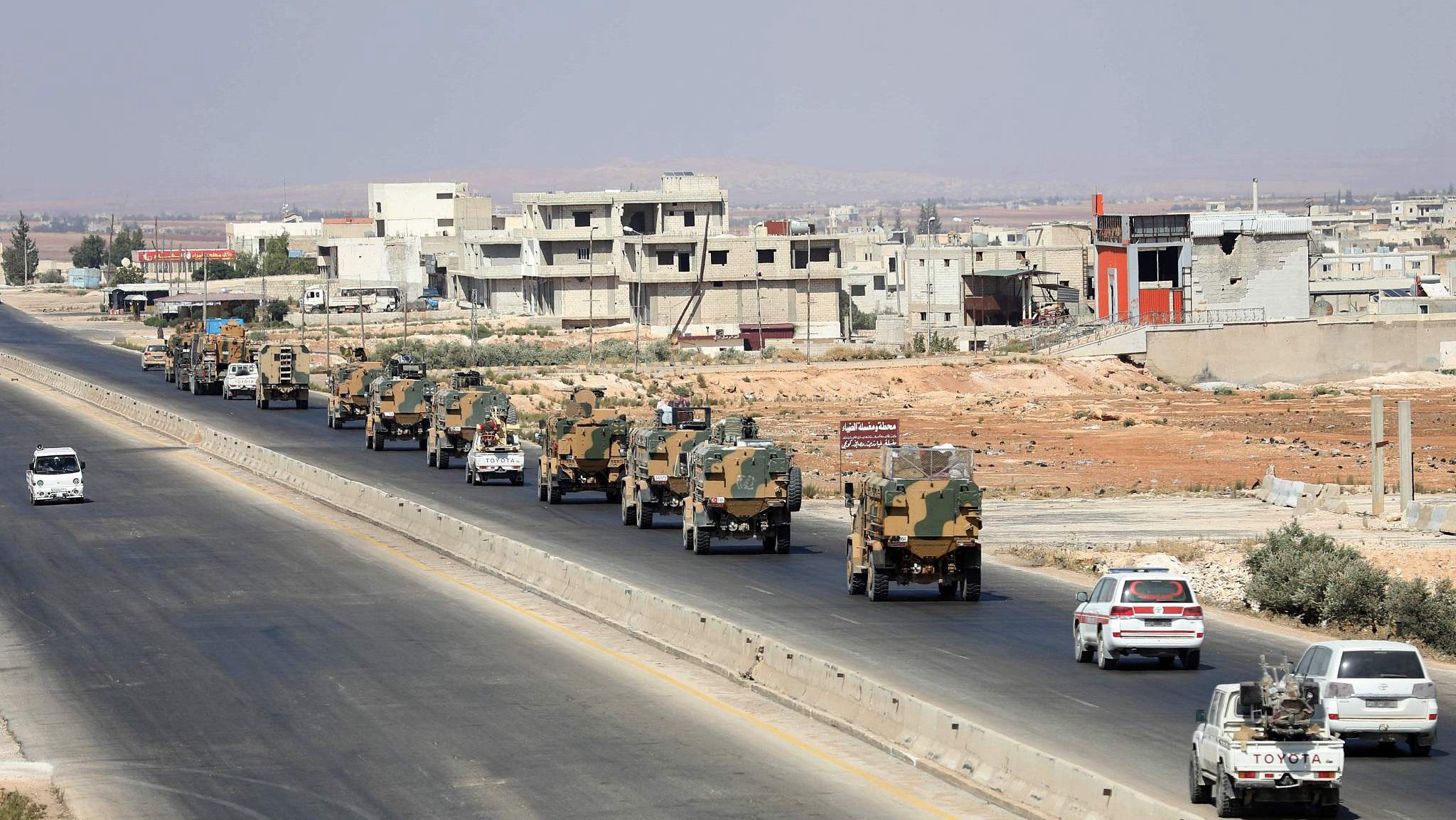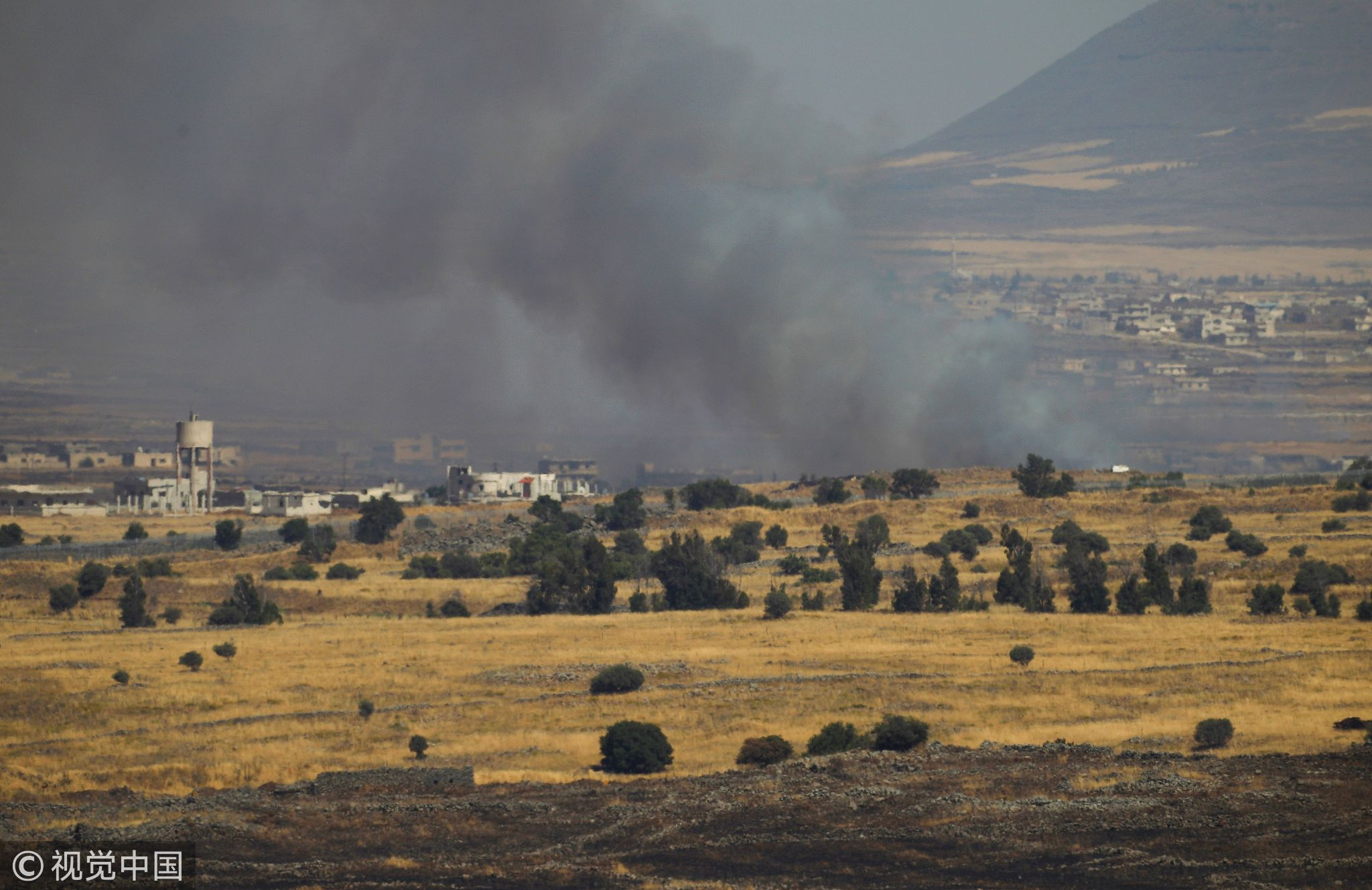
Opinions
17:59, 09-Sep-2018
Opinion: Will Israel intervene in Syria?
Updated
17:01, 12-Sep-2018
By Wang Jin

Editor's Note: Wang Jin is a research fellow of Charhar Institute and of Syria Research Center at Northwest University of China. The article reflects the author's opinion and not necessarily the views of CGTN.
As the Idlib province of northwestern Syria remains the last major stronghold for Syrian rebel groups, the upcoming military assault planned by Syria government forces might lead to the final major battle in the Syria civil war.
Meanwhile, as a neighbor of Syria, Israel’s stances and concerns over Syria might significantly influence the future of Syria civil war. Will Israel directly intervene in the Syria civil war to stop the Idlib assault planned by Syria's government?
After Syrian civil war broke out in 2011, Israel’s role in Syria has been both reserved and controversial. On the one hand, Israel has kept largely restraint and tried not to get involved directly into the Syria civil war. Unlike other Middle East states such as Saudi Arabia, Iran and Turkey, who supported directly either the Syrian government or different rebel groups in Syria, Israel chose not to support any related party involved with the Syrian civil war and stayed away from long-lasting conflicts.
On the other hand, since the Syrian civil broke out in 2011, Israel has launched dozens of airstrikes against military targets inside Syria. Israel military and intelligence establishments believe that Syria has already become an important frontline and stronghold for Iran and other Shia militant groups supported by Tehran preparing wars and attacks against Israel.

A picture taken from the Israeli-occupied Golan Heights shows smoke billowing from the Syrian side of the border on June 24, 2017 /VCG Photo
A picture taken from the Israeli-occupied Golan Heights shows smoke billowing from the Syrian side of the border on June 24, 2017 /VCG Photo
Israel’s security concerns over Syria have become gradually more imminent with the deployment of Lebanon Hezbollah forces, Iranian Islamic Revolutionary Guards and other Shia militants into Syria after 2013. Israel worries that the Golan Height area, where a fragile cease-fire line has been kept for decades between Israel and the Syrian government, might be crushed by the Hezbollah and other Shia militants that are connected with Tehran.
What Israel demands is to keep Iran’s forces and proxies at a distance of up to 60 kilometers from the cease-fire line in Golan Height, and create a buffer zone up to Suwayda in the east and Damascus in the north to separate Golan Height area and Shia militants.
In addition, Israel is afraid of the transfer of both chemical weapons and other missiles that were positioned in Syria by the Syrian government and Iranian Islamic Revolutionary Guards into the hands of Hezbollah and other Shia militants. The heavy weapon factories set up in Syria by Iran might become a threat to Israel's national security, given these weapons could be transferred to Hamas, Islamic Jihad and other Palestinian militants in Gaza and West Bank.
Although Israel’s concerns over Syria are salient, it is very difficult for Israel to directly get involved in the civil war. Israel is not able to attend the Syria peace conference, given that Israel is perceived by Syria as an “illegal existence” in the Middle East.

A Syrian man walks past a stall in the rebel-held northern Syrian city of Idlib's central Clock Square on September 6, 2018 /VCG Photo
A Syrian man walks past a stall in the rebel-held northern Syrian city of Idlib's central Clock Square on September 6, 2018 /VCG Photo
Meanwhile, Washington is not interested in actively participating in Syria's peace process therefore Israel is not able to influence Syria's civil war through military manner. The only way for Israel to express its concerns over the Syrian issue is to strike sensitive targets that are identified by its intelligence agencies with its air forces.
Through a diplomatic manner, Israel senses the important role of Russia over Syria and is actively advising Moscow to curb the influence of Iran in Syria. The relation between Israel and Russia is positive and could be attributed to two aspects. On the one hand, there are more than one million Russian Jews that emigrated from former Soviet Union states to Israel after 1990s, and those Russian Jews, or “Russians” called by Israelis, have become an important belt connecting Israel and Russia.
On the other hand, Russia highlights Israel’s role with the US, and the Jews in Israel might help alleviate the strained relation between Moscow and Washington. Therefore, Russia is willing to help persuade Iran to stay away from Golan Height.
Israel’s concerns over the Syrian issue largely concentrate on Iran and its Shia militant groups’ role and intention over Golan Height. Israel is not interested in direct involvement inside Syria's civil war and, therefore, will not directly intervene in the upcoming Idlib battle being planned by Syria government.
(If you want to contribute and have a specific expertise, please contact us at opinions@cgtn.com.)

SITEMAP
Copyright © 2018 CGTN. Beijing ICP prepared NO.16065310-3
Copyright © 2018 CGTN. Beijing ICP prepared NO.16065310-3